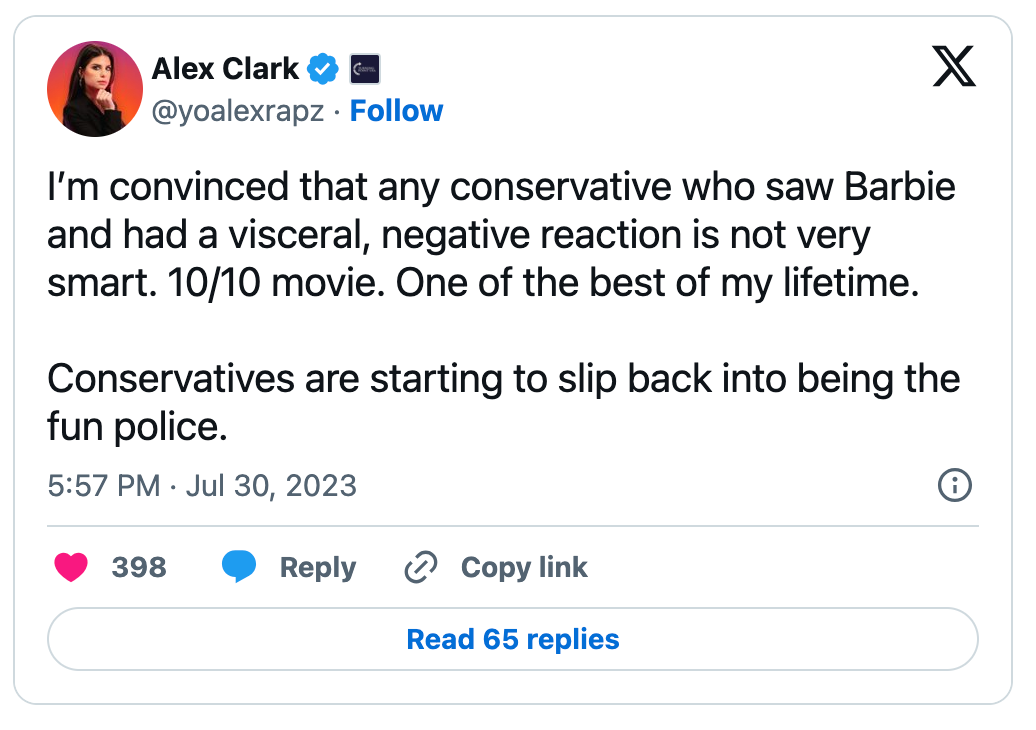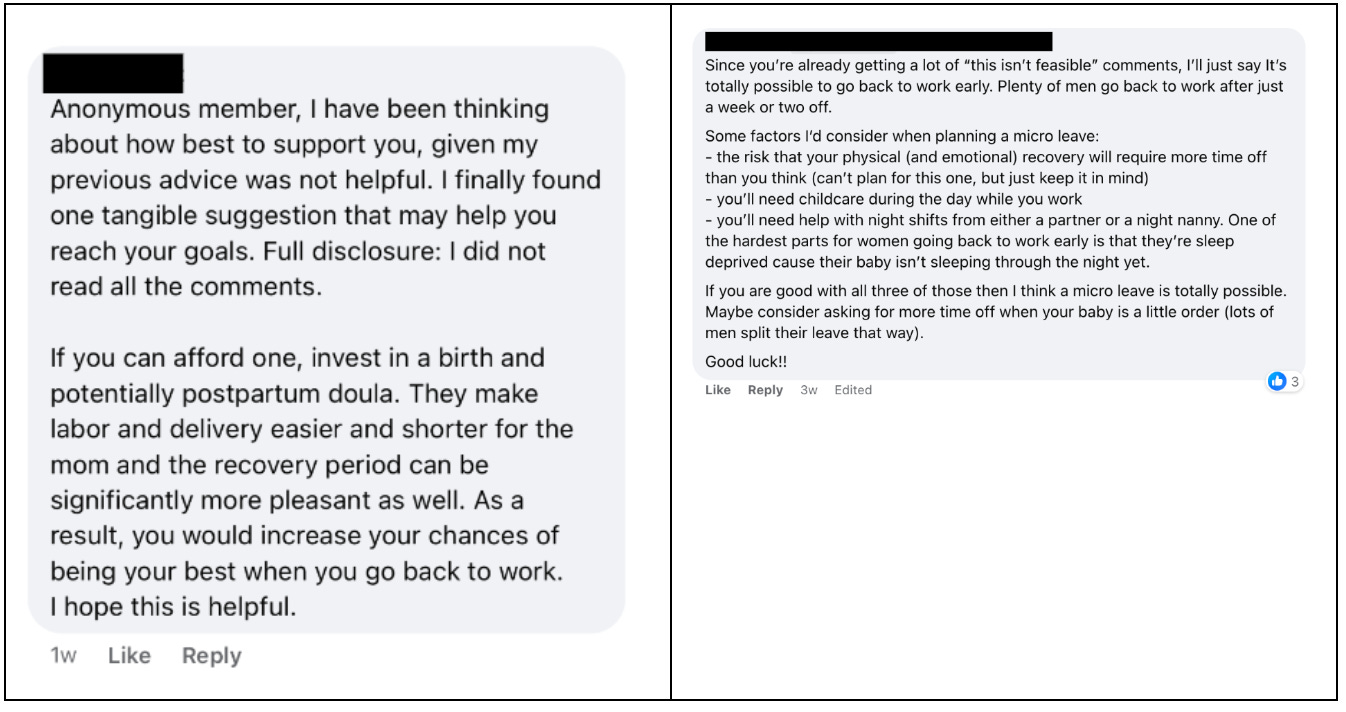The Case For Being Basic
From a Nobel Prize winning economist
My millennial status became geriatric last week when I joined a new Facebook group and realized that I am now part of more than 75 communities. 😱 I am not proud of this fact. But as any woman in her 30’s knows, Instagram may be entertaining, but FB groups can be helpful.
So there I was, doing the 3am post-diaper-change scroll, when I stumbled upon a thread in the Women in Product community.
In the post, a pregnant woman working at a high-growth startup poses a question on how to approach the topic of parental leave with her founders, “When should I tell them and what should I offer?”
She provides the following facts:
There is no formal leave policy.
She loves her job.
She believes in the company’s trajectory.
She also hints at the following context:
She’s a high-ranking employee with a lot of equity.
The typical, hard-charging startup culture is making her anxious that if she takes time off to have a baby, they will use that as a (subconscious) excuse to eventually let her go
The current tech environment, with almost 200,000 layoffs this year, makes it scary to think about finding a new job.
I know what you’re thinking. But this is not a story about startup culture or the need for a federally mandated paid leave. This is a tale of how the people in that forum responded.
“Do not volunteer a working maternity leave.”
“If this company would fire you for taking a couple of months to heal from childbirth, why do you want to work for them?”
“The environment you describe sounds toxic and draining.”
I generally find this community very valuable. And to some extent, their answers are not wrong. But the overall tenor of responses mostly ignored her context, failed to provide her an example of what was possible and worse, put the onus on her to act in a “representative” way while not considering her long-term needs.
See two of her gracious responses, trying to clarify her ask (emphasis in yellow mine):
I believe this post uncovers a broader theme seen across a large swath of society. We are failing to do the hard work of figuring out answers to our basic problems. It’s so much easier to just critique the questions.
We are failing to do the hard work of figuring out answers to our basic problems. It’s so much easier to just critique the questions.
Turns out, focusing on the basics can be really powerful.
Earlier this month, Nobel Prize winning economist Claudia Goldin published a working paper titled “Why Women Won.” In it, the Harvard professor explores why almost half of all legal, political and social rights for women in the last century happened in the 10-year period from 1963 to 1973.
Did you get that? Let me repeat for the people in the back.
Of the 155 critical moments in women’s rights history from 1905 to 2023, 45% occurred in the same time time period that the Beatles came together and fell apart (correlation, not causation 🙄). Before then, women could be fired for being married, they were not seated on juries and they had to use their husband's name on their credit cards.
As I was reading the research, two particular insights stood out to me as extensible to much more than gender politics. Let’s dig in.
Embrace Being Basic
That brief period of time from 1963 -1973 when women accomplished so much didn’t happen because they formed a monolithic identity, but because their needs were so basic (i.e. opening a credit card in your own name), that their interests briefly aligned.
By the 1980s women in the United States were, and still are, deeply divided by income class, ethnicity, race, religion, marital status and more. And the more fractured we become, as our needs become more complex, the less effective we become at organizing. Cue the viral video of the week:
Dr. Goldin is an economic historian and spends hella time looking at longitudinal surveys. In the paper, she looked at survey questions asking Americans questions like:
“On a scale, do you think women should have an equal role with men in running business, industry and government?”
or
“Please rate how you feel about the Women’s Movement?
What she found (as demonstrated below) is that the division amongst American women since 1973 was exponentially more than that between men and women. Basically, once women move beyond the basics, there is more that divides us than unites us.

Which brings me to my next point.
When you’re busy, double down on what matters
An economics paper on the evolution of women’s rights can shine a light on specific steps we can take to overcome our differences. We’ve established that being basic is the first step. Now, I want to explain what happens after we get our needs met and what that means moving forward.
The short answer is, we’re exhausted and once we get what we need we tend to bail from things. Which is a problem, because it leaves the most extreme of us at the table.
Specifically, Dr. Goldin’s paper showed that in 1973 the feminist agenda was taking shape, but it was unclear how it would matter to “traditional” women. The passage of the ERA and the Roe v Wade decision made that clearer and energized traditionalists. Or, as she shows in economic terms, “the once-latent demand” of those represented by g(Di) in the below graph took shape.
Graphs not your thing? Stay with me!
There are feminists and there are traditionalists. Unsure of which you are, no problem, we’ve got Barbie.
Did you see the Barbie movie as a manifesto against the patriarchy?
You’re likely a feminist.
Did you see the Barbie movie as a story about a mother/daughter relationship making fun of woke liberals? You’re likely a traditionalist.
**With profound apologies to Dr. Goldin on my methodology here.
We all loved the movie because it filled our latent need to be recognized for the basic bitches within all of us, but the minute anyone gets Weird Barbie, all hell breaks loose.
So What?
I want to acknowledge we’re seemingly stuck.
We live in a world that is doing everything it can to erode the nuance of our lives. But we know that the way forward is to double down on the basics.
Dr Goldin, in her paper, outlines a brief moment in US history where the stars aligned such that women learned the language, gained the talents and found a way through their differences to accomplish monumental changes that other developed nations to this day don’t have codified in law.
It’s also a cautionary tale that bailing after getting our basic needs met (which is exactly what happened after that 10-year period) risks a radicalization and destruction of the very things that brought us together in the first place.
Here’s where I want to go back to that FB group. As the original poster continued to articulate her ask, the women of the group started to listen, and the answers changed from a wholesale critique of the system and her choices, to addressing her needs.
The truth is, we are very divided. And if Dr. Goldin’s paper is any indication, the more rights we gain as a society, the more likely that this dynamic will continue to increase. The more complex things become, the more important it is to do the hard work of addressing core needs and settling in for the long-haul.
As Ruth Bader Ginsburg said, “Fight for the things that you care about, but do it in a way that will lead others to join you.”
What are your thoughts? What do you find can help us through our societal divisions to affect long-term change? How can we better support each other?
This is my third essay while participating in Write of Passage Cohort 11. Not gonna lie, this one was hard. Huge thanks to everyone who helped me edit and refine! Haley Brengartner Tommy Dixon Family Group Chat Karena Emma Dorge monica Alec McNayr Gautam Deviah Thanks to Packy McCormick for the inspiration on structure and POV! And lastly, thanks to the phenomenal community of brilliant Women In Product that teach me so very much.











Great stuff, Cris! So glad to see this come together and get out into the world!! Bravo!
Amazing work Cris! Loved how this turned out :)